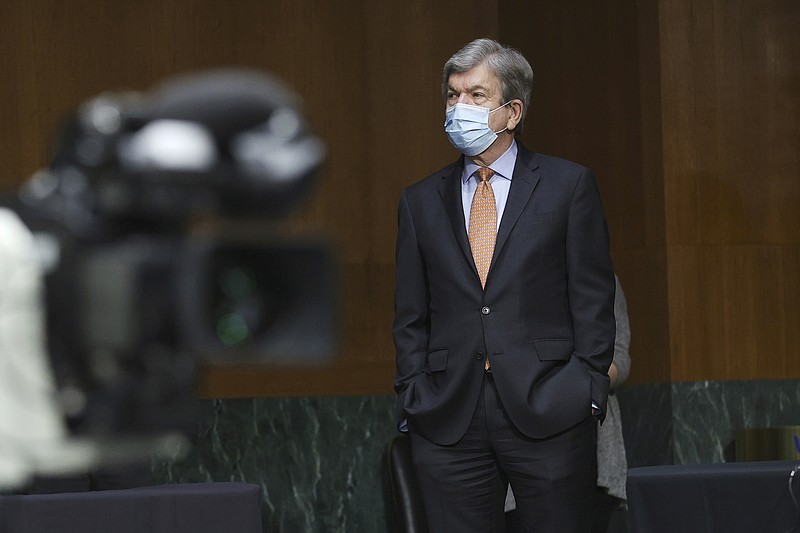A second wave of COVID-19 infections is expected this fall; quick and easy tests are needed to help students and workers safely return to normalcy; and a future federal financial aid package should include schools, colleges, hospitals and hard-hit industries, according to Missouri Sen. Roy Blunt, who spoke with reporters on a conference call Thursday.
Blunt is chairman of the U.S. Senate Appropriations Subcommittee on Labor, Health and Human Services, Education and Related Agencies and said he's had many discussions and been on hundreds of calls with scientists and health care providers.
"I think they all think there will be a second wave. I do, too," Blunt said, adding a second wave of COVID-19 infections would probably come in the fall, perhaps late October or November.
There are things that would help mitigate a significant rise in infections, however.
Blunt said "easily taking frequent tests makes a difference," and more tests will help send people home who would otherwise be exposing other people to illness.
Blunt envisioned a scenario where a college student taking classes on a campus gets a fever and goes to get a COVID-19 test. A short turnaround result from a test could tell the student whether they can go back to class or should instead move into a dorm set aside for isolation where they can continue to take classes remotely.
It's going to take some technological innovations to get there, though. Blunt said, as with vaccine development, proposals are being vetted to see which might be most likely to succeed.
He expects an announcement will come soon on multiple vaccine candidates that could be moved forward through the government's regulatory process, and candidates that are more likely to be successful would begin production.
That saves time in developing a vaccine, but there's still a chance an individual vaccine candidate might not work out. In that case, Blunt said, the government would buy up and discard an unsuccessful vaccine candidate - a cost he said would be well worth it.
"The vaccine is what lets us move on with the economy the way we want to," and to let people re-engage with the economy, he said.
Blunt said there also needs to be a plan to "fairly and quickly get that vaccine across the country" and not just have it be available first to people who can buy it or travel to get one.
In the meantime, as COVID-19 cases increase now that states have loosened public health restrictions on business and daily activities, Blunt said it's "unlikely that the death toll will have any commensurate comparison to the death toll earlier" because more identified infections now are asymptomatic and among younger, healthier people.
In terms of the economic impact of the pandemic, Blunt said it's different than the Great Recession that started in 2008 or the Great Depression that started in 1929, and it's right to move from the economic rescue phase of spring to more of a recovery plan.
However, he said a future federal aid bill ought to focus on businesses, jobs and groups of individuals who were especially hard hit - including restaurants, theaters, motor coaches and airlines.
"With some certainty there will be more money for education - elementary and secondary, and higher," as well as health care providers, especially hospitals, he said.

